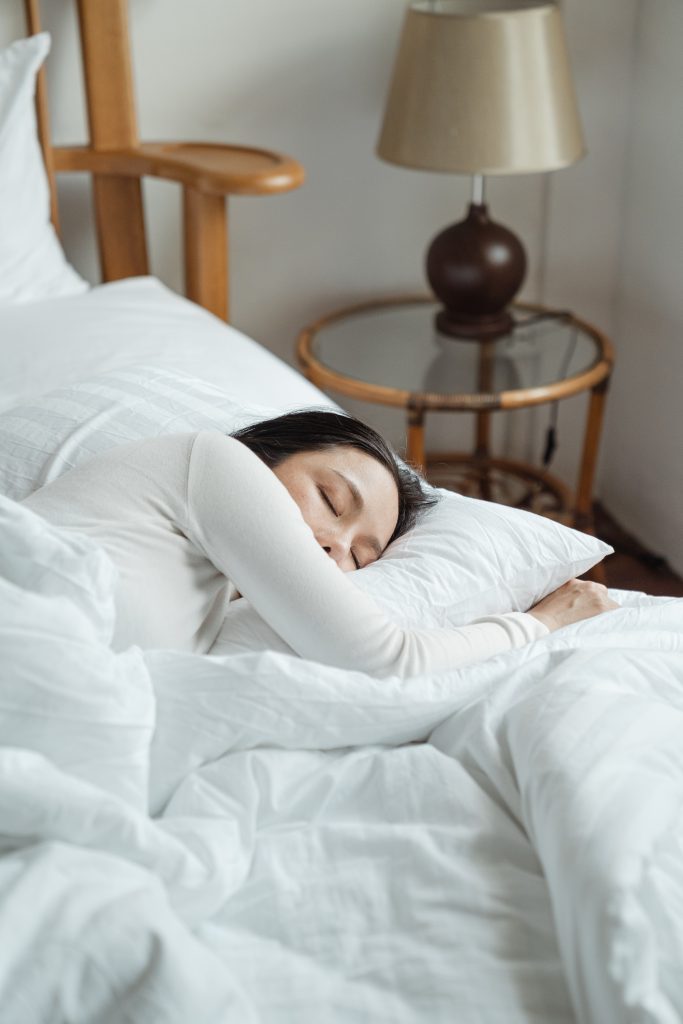Sleep and sexual health are intertwined aspects of overall well-being. This article explores the relationship between sleep and sexual health, the impact of sleep on sexual function, and strategies for fostering a healthy and balanced connection between the two.

I. Understanding the Relationship between Sleep and Sexual Health:
- Sleep Quality and Sexual Function:
a. Positive Influence: Quality sleep promotes overall well-being, energy levels, and mood, which can positively impact sexual desire, arousal, and satisfaction.
b. Negative Impact: Sleep disturbances or disorders can lead to fatigue, decreased libido, and difficulties in sexual performance, affecting sexual health. - Hormonal Regulation:
a. Testosterone Levels: Sufficient sleep supports healthy testosterone production, a key hormone influencing sexual desire and performance in both men and women.
b. Estrogen and Progesterone: Adequate sleep contributes to the regulation of estrogen and progesterone levels, which play a role in sexual health and function.
II. The Impact of Sleep on Sexual Function:
- Sexual Desire and Arousal:
a. Fatigue and Libido: Sleep deprivation or poor sleep quality can lead to fatigue, reducing sexual desire and arousal.
b. Sleep Disorders and Dysfunction: Conditions such as sleep apnea or insomnia may contribute to sexual dysfunction, affecting the ability to achieve or maintain arousal. - Emotional Connection and Intimacy:
a. Mood and Emotional Well-being: Sleep deprivation can lead to mood disturbances, irritability, and emotional instability, negatively impacting emotional connection and intimacy.
b. Communication Challenges: Lack of sleep can hinder effective communication about sexual needs, desires, and boundaries, affecting overall sexual satisfaction. - Energy and Stamina:
a. Fatigue and Performance: Inadequate sleep can result in decreased energy levels and physical fatigue, impacting sexual performance and endurance.
b. Physical Sensations: Sleep deprivation may lead to decreased sensitivity and reduced pleasure during sexual experiences.

III. Strategies for Fostering a Healthy Connection between Sleep and Sexual Health:
- Prioritizing Sleep Hygiene:
a. Consistent Sleep Schedule: Establish a regular sleep routine, aiming for a consistent bedtime and wake-up time to promote a healthy sleep-wake cycle.
b. Sleep-friendly Environment: Create a comfortable and conducive sleep environment, minimizing noise, light, and distractions to enhance sleep quality. - Managing Stress and Relaxation:
a. Stress Reduction Techniques: Engage in stress management activities such as meditation, deep breathing exercises, or relaxation techniques to promote better sleep and reduce anxiety.
b. Wind-down Routine: Establish a relaxing pre-sleep routine, incorporating activities like reading, taking a warm bath, or listening to soothing music to prepare the mind and body for sleep. - Regular Exercise:
a. Physical Activity: Engage in regular exercise, as it promotes better sleep quality, boosts mood, and increases energy levels, positively influencing sexual health.
b. Timing of Exercise: Avoid vigorous exercise close to bedtime, as it may interfere with sleep. Aim for earlier in the day to reap the sleep-enhancing benefits. - Open Communication and Emotional Intimacy:
a. Honest Dialogue: Communicate openly with a partner about sleep concerns, fatigue, and their impact on sexual health, fostering understanding and empathy.
b. Emotional Connection: Prioritize emotional intimacy and connection with a partner, creating a safe space for vulnerability and open communication about sexual needs and desires. - Seeking Professional Support:
a. Sleep Evaluation: If experiencing persistent sleep difficulties, consider seeking a sleep evaluation from a healthcare professional to identify and address underlying sleep disorders or conditions.
b. Couples Therapy: Consider couples therapy to address any sexual challenges related to sleep disturbances, fostering better understanding and support.
Conclusion:
Sleep and sexual health share a significant interplay in overall well-being. By prioritizing sleep hygiene, managing stress, engaging in regular exercise, fostering open communication, and seeking professional support when needed, individuals can nurture a healthy and balanced connection between sleep and sexual health. Remember, everyone’s sleep needs and sexual experiences are unique, and it is essential to listen to your body, prioritize self-care, and seek the necessary support to promote optimal sleep and sexual well-being.

